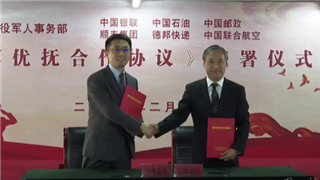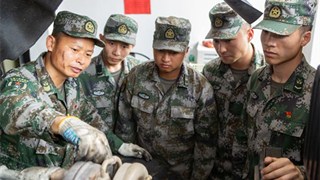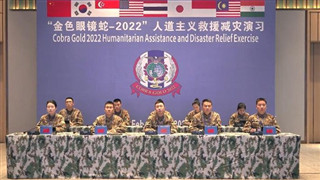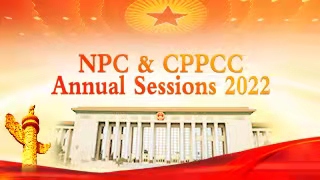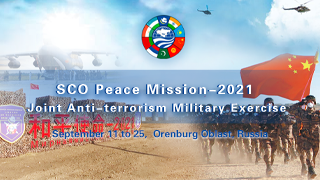by Shamim Zakaria
BEIJING, March 3 (Xinhua) -- China is set to convene its annual "two sessions," a key event on its political calendar, from Friday.
The annual gatherings of the National People's Congress (NPC) and the National Committee of the Chinese People's Political Consultative Conference bring together thousands of national legislators and political advisors to review and discuss the work of the central government, national legislature, top court and procuratorate over the past year and plan for the future.
This systematic approach offers an ideal sight of socialist democracy with Chinese characteristics in a country of 1.4 billion people.
The NPC is the highest state organ of power and its 2,900-plus deputies are democratically elected and come from a wide variety of backgrounds -- including farmers, factory workers, deliverymen, alongside officials, lawyers, university professors.
Serving on a term of five years, the current 13th NPC deputies have voted on a range of crucial decisions and policies that have far-reaching significance: they elected the president of the People's Republic of China, endorsed a massive cabinet restructuring plan, adopted the country's first-ever Civil Code, and approved the 14th Five-Year Plan (2021-2025).
Regardless of their sex, age, and profession, each deputy casts a vote of equal weight.
China's democratic paradigm is different in many ways from that of the West, and Chinese policymakers hold that democracy is a multifaceted practice that should benefit the majority of the people and cover every aspect from election to legislation, decision-making, administration and supervision.
Hence, it is called "whole-process people's democracy." This goes far beyond the options of campaigning, debate, and voting -- which are widely seen as the defining characteristics of democratic practices in the West.
Socialist democracy with Chinese characteristics is totally people-oriented and views people as the ultimate goal of development. People's democracy is defined by the people's standing as masters of the country.
According to a white paper released by China last year, democracy takes various forms in a richly diverse world, and China's democracy thrives alongside that of other countries in the garden of civilizations.
Global scholars, meanwhile, hold the opinion that Western countries, particularly the United States, have experienced the worst erosion in democracy over the past century.
In the setting of the United States, which bills itself as a so-called defender of democracy, Kishore Mahbubani, a renowned Singaporean diplomat-turned-scholar, has often expressed reservations about the country's democratic functioning. He has dubbed it a "plutocracy," in which money has taken control of the American political system.
Regular elections and voting rights are a sham if the outcome of an election does not represent the majority's wishes.
In comparison, the Chinese people have not only the right to vote and run for office, but also the right to be informed of, participate in, express opinions on and supervise the government and social affairs.
"Two sessions" provide an opportunity to observe how deputies and political advisors debate and discuss key issues and exercise their democratic rights to the fullest extent possible.
There are around 2.62 million deputies to people's congresses at five levels, of whom 94 percent are at the county and township levels and directly elected on a one-person-one-vote basis. Deputies at national, provincial and municipal levels are elected by the people's congresses at the next lower level.
The NPC deputies, in particular, are vested with authority by the Chinese people, and can freely express their views.
Freedom, however, is always subject to reasonable restrictions and, most importantly, it must be utilized responsibly. And China's "two sessions" are a classic example of this.
Disruptions in the form of chaos and hooliganism, which may occur during parliamentary proceedings in many Western nations, are unheard of in China.
While debates and deliberations are common in "two sessions," they are conducted in a disciplined manner and aim for democratic decision-making so that the people's aspirations and voices can become the guiding principles and policies of China's governance.
With this year's "two sessions" soon to open, Beijing will be once again in the spotlight after the successful conclusion of the Winter Olympics, as the political event is not only critical to China but also has an influence on the rest of the world.
Whether it is boosting economic growth, implementing tax cuts and reforms, promoting green development, improving education, or policies involving elderly and child care, China's "two sessions" make decisions that reflect the overwhelming majority's fundamental interests and mobilize the strength necessary to pursue national rejuvenation.
